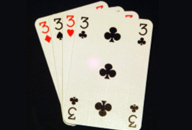January 25, 2016
Enter the beautiful Amal Clooney, a barrister of international proportion and just-so-happens-to-be wife of Rosemary's nephew, George. There is nothing ordinary about Mrs. Clooney. She is the product of educated and financially secure parents who raised her in London. She's worked at Sullivan & Cromwell, The Hague and the UN; she has advised kings (Bahrain), countries (Armenia) and imprisoned prime ministers (The Maldives). She speaks three languages, was married in Venice and now owns a house on an island in the middle of the River Thames. The only thing she's never done is work as an Assistant District Attorney in Brooklyn, and there's the rub.
When interviewed last week, Ms. Clooney (the "highly regarded international civil rights lawyer"), cautioned that if other lawyers could not handle the excitement of her own life, they could "prosecute traffic violations" instead. This elegant, accomplished and privileged woman could not explain her own worth without deni- grating the work of other attorneys.
We see this all the time. We feel this in courtrooms. We are subjected to this at cocktail parties. We, who spend days and nights representing victims with far less front page majesty than Ms. Clooney's clients, are pond scum; something less to those who think they are something more. It's bad enough when young Dr. Kildare pull this crap at dinner, but from one of our own? At the end of the day, a real day, we work harder, longer and change more lives in doing so than Ms. Clooney can ever

imagine.
And that unexciting ADA you insulted in Brooklyn prosecuting traffic violations, fare beats, assaults, burglaries and homicides? Take it from us, Amal, she can kick your ass. She's a real lawyer and we, who spend everyday in the courtroom (not The Hague) respect her, even if you don't. By the way, she has Jimmy Choo's too. All that takes is money, not class.
My my my! What issue could possibly convince an appellate panel to write three concurring opinions, without a single dissent or majority opionion? That was our question when we ran across Srikishun v. Edye, NY Slip Op 00315 (1st Dep't 1/19/16). Justice Tom wrote for himself; Justice Kapnick wrote for herself and Justice Andrias; and Justice Saxe wrote for himself and Justice Manzanet-Daniels. Whassup?
Plaintiff donated a kidney to her father, only to have a foreign body (a "knot pusher tip") left behind inside her body when all was done. This required a second surgery, under general anesthesia, to remove it. Plaintiff's action against Defendants was for the injury of that second surgery. A Bronx jury found a departure under Question 1 of the verdict sheet, but not that this departure was a "substantial factor" in causing Plaintiff's injuries under Question 2. After the verdict was taken, the trial judge advised counsel that the jury had sent out a note saying that